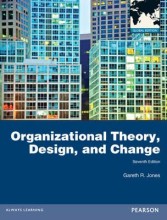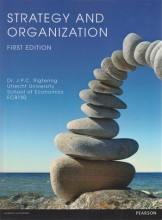Decision Making, Learning, Knowledge Management, and Information Technology
27 important questions on Decision Making, Learning, Knowledge Management, and Information Technology
How do you call the process of responding to a problem by searching for and selecting a solution or course of action that will create value for organizational stakeholders?
How do you call decisions that are repetitive and routine?
How do you call decisions that are novel and unstructured?
- Higher grades + faster learning
- Never study anything twice
- 100% sure, 100% understanding
On which six assumptions is the Rational model for decision making based on?
- Information is available
- Decision making is costless
- Decision making is value free
- The full range of possible alternatives is generated
- Solution is chosen by unanimous agreement
- Solution chosen is best for the organization
Which six characteristics has the Carnegie model for decision making?
- Limited information is available
- Decision making is costly
- Decision making is affected by the preferences and values of decision makers
- A limited range of alternatives is generated
- Solution is chosen by compromise
- Solution chosen is satisfactory for the organization
How do you call the limited information searches to identify problems and alternative solutions?
How do you call the process managers use to improve organization members capacity to understand and manage the organization and its environment so they can make decisions that continuously increase organizational effectiveness?
How do you call the Organizational members search for and experimentation with new kinds or forms of organizational activities and procedures?
How do you call the organizational members learning of ways to refine and improve existing organizational activities and procedures?
How do you call an organization that purposefully designs and constructs its structure , culture, and strategy so as to enhance and maximize the potential for organizational learning to take place?
How do you call cultures that value innovation and encourage and reward experimentation and risk taking by middle and lower-level managers?
How do you call a type of IT-enabled organizational relationship that has important implications for both organizational learning and decision making?
How do you call the system of interrelated beliefs, preferences, expectations, and values a person uses to define problems and events?
How do you call factors that systematically bias cognitive structures and affect organizational learning and decision making?
What are the five factors that influence a managers cognitive structure and thus organizational decision making?
- Cognitive dissonance
- Illusion of control
- Frequency and representativeness
- Projection and Ego-defensiveness
- Escalation of commitment
How do you call the state of discomfort or anxiety a person feels when there is an inconsistency between his or her beliefs and actions?
How do you call a cognitive bias that causes managers to overestimate the extent to which the outcomes of an action are under their personal control?
How do you call a cognitive bias that deceives people into assuming that extreme instances of a phenomenon are more prevalent than they really are?
How do you call a cognitive bias that leads managers to form judgements based on small and unrepresentative samples?
How do you call a cognitive bias that allows managers to justify and reinforce their own preferences and values by attributing them to others?
How do you call a cognitive bias that leads to interpret events in such a way that their actions appear in the most favourable light?
How do you call a cognitive bias that leads managers to remain committed to a losing course of action and refuse to admit they have made a mistake?
What are the three strategies for organizational learning?
- Listening to dissenters
- Converting events into learning opportunities
- Experimenting
What are the five ways of improving decision making and learning?
- Organizational learning
- Using game theory
- Nature of the Top-management team
- Devil's advocacy and dialectical inquiry
- Collateral organizational structure
What are the two types of top-management teams?
- Wheel
- Circle
How do you call the conformity that emerges when like-minded people reinforce one another's tendencies to interpret events and information in similar ways?
How do you call a person who is responsible for critiquing ongoing organizational learning?
The question on the page originate from the summary of the following study material:
- A unique study and practice tool
- Never study anything twice again
- Get the grades you hope for
- 100% sure, 100% understanding
































